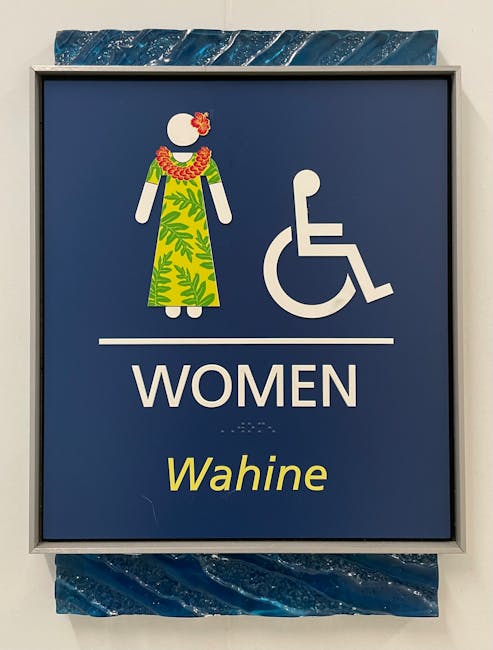Qatar Hospitality Workforce Recruitment
Understanding Qatar Hospitality Workforce Recruitment
The Qatari labor framework is distinct and highly regulated. It is primarily governed by Law No. 14 of 2004. This law, and its amendments, set the standard for employment. Understanding this legal bedrock is the first step toward compliance. The Ministry of Labour (MOL) and other government bodies actively enforce these regulations. Therefore, ignorance is not a viable defense. The hospitality industry, with its diverse roles, faces specific scrutiny. From hotel management to service staff, every position must be properly documented. This process ensures worker protection and employer liability mitigation.
Qatar Hospitality Workforce Recruitment Benefits
A compliant recruitment strategy offers immense advantages. Firstly, it significantly reduces legal risks and potential financial penalties. Secondly, it enhances your brand’s reputation as an ethical employer. This is crucial for attracting top-tier talent in a competitive market. Moreover, it fosters a positive and secure work environment. Consequently, this leads to higher employee retention and reduced turnover costs. Proper compliance also ensures smooth operational continuity. It prevents costly delays from visa processing or government inspections. Ultimately, investing in compliance is investing in long-term, sustainable business growth.
How Qatar Hospitality Workforce Recruitment Works
The recruitment process involves several critical stages. First, employers must obtain necessary permits from the MOL. Next, they can begin sourcing candidates locally or internationally. For international hires, the employer must sponsor the employee’s work visa. This involves submitting educational and professional certificates for attestation. Additionally, a standardized employment contract must be signed. This contract is then submitted to the government for approval. Subsequently, medical examinations and biometric registration are mandatory steps. Finally, the Qatar ID (QID) and residence permit are issued. Each step requires precise documentation and adherence to timelines.
Best Qatar Hospitality Workforce Recruitment Practices
Adopting best practices is essential for seamless compliance. First, always partner with reputable and licensed recruitment agencies. They understand the local nuances and legal requirements. Secondly, maintain transparent communication with all candidates. Clearly explain contract terms, benefits, and job responsibilities. Furthermore, implement a robust document management system. Keep all employee records, contracts, and permits organized and easily accessible. Regular internal audits are also a recommended practice. They help identify and rectify potential compliance gaps before they become issues. Training your HR team on the latest legal updates is equally vital.
Qatar Hospitality Workforce Recruitment Implementation
Implementing a compliant framework requires a structured approach. Begin by conducting a thorough audit of your current hiring processes. Identify any gaps against the latest Qatari labor laws. Next, develop standardized operating procedures (SOPs) for every recruitment stage. These SOPs should cover everything from job advertising to onboarding. Moreover, leverage technology to streamline application tracking and document management. For complex scenarios, seeking expert consultation is highly advisable. They can provide tailored solutions and ensure your implementation is flawless. Finally, train all involved staff on the new procedures and their importance.
Advanced Qatar Hospitality Workforce Recruitment Strategies
Beyond basic compliance, advanced strategies can yield greater efficiency. One strategy is to develop a strong employer value proposition (EVP) tailored to the region. This helps attract talent that aligns with your company’s culture and goals. Another strategy involves building a talent pipeline for future needs. This reduces time-to-hire when new positions open. Additionally, utilizing data analytics can optimize your recruitment channels. It identifies which sources yield the most qualified and compliant candidates. Engaging with professional resources for market intelligence is also a smart move. It keeps your strategies ahead of regulatory curves.
Qatar Hospitality Workforce Recruitment Success Tips
Success hinges on diligence and proactive management. Always stay updated on changes to Qatari labor law. Regulations can evolve, and staying informed is non-negotiable. Build strong relationships with government liaisons and PROs (Public Relations Officers). They can facilitate smoother processing of your applications. Furthermore, prioritize the welfare and fair treatment of your employees. This not only ensures compliance with International Labour Organization guidelines but also boosts morale. Finally, never underestimate the power of thorough documentation. It is your primary evidence of compliance during any audit.
Future of Qatar Hospitality Workforce Recruitment
The future of recruitment in Qatar is moving towards greater digitization and transparency. Government portals are increasingly becoming the primary interface for all transactions. This shift promises faster processing times and reduced paperwork. Moreover, there is a growing emphasis on nationalization programs (Qatarization). These programs aim to increase Qatari national participation in the private sector. Additionally, global trends like remote work may influence local policies. Understanding these dynamics, as reported by entities like the World Bank, is crucial. Adapting your strategies early will provide a significant competitive advantage.
Frequently Asked Questions
What are the key legal documents required for recruiting foreign workers in Qatar’s hospitality sector?
Key documents include a company commercial registration, MOL recruitment permit, attested employee educational certificates, a standardized employment contract, and a valid passport. These are essential for visa processing and Qatar ID issuance.
How does the Kafala (sponsorship) system affect hospitality recruitment in Qatar?
Recent reforms have significantly dismantled the traditional Kafala system. Now, workers can change jobs at the end of their contract without requiring a No Objection Certificate (NOC) from their current employer. This offers more mobility for employees.
What are the common pitfalls to avoid during the recruitment process?
Common pitfalls include incorrect document attestation, misclassification of job roles, offering contracts that don’t align with MOL standards, and not budgeting for all associated government fees. These errors can cause significant delays.
Are there specific wage protection laws in Qatar for hospitality workers?
Yes, the Wage Protection System (WPS) is mandatory. It requires employers to pay employees electronically through a Qatari bank. This ensures transparency and timely payment of salaries, which is strictly monitored by the government.
How do Qatar’s labor laws compare to other GCC countries like the UAE?
While there are similarities across the GCC, each country has unique laws. Qatar has been proactive with recent labor reforms. Comparing specifics with UAE government employment regulations is important for multinational operators.
What role do health and safety regulations play in recruitment compliance?
Health and safety are integral. Employers must provide a safe work environment as per Qatari law and international benchmarks like those from the World Health Organization. This includes proper accommodation and insurance for all employees.
Conclusion
Mastering Qatar hospitality workforce recruitment compliance is a complex but achievable goal. It demands a proactive and informed approach. This guide has outlined the essential components for building a robust and ethical recruitment framework. The benefits extend far beyond avoiding penalties. They include enhanced reputation, operational stability, and a motivated workforce. As the market evolves, staying informed through U.S. Department of Commerce trade information and local updates is critical. Do not navigate this complex landscape alone. Schedule appointment with our experts today to ensure your recruitment strategy is fully compliant and optimized for success.




